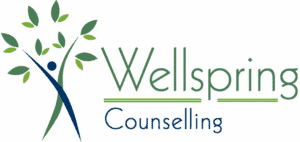Guiding You to Happiness: Wellspring’s Eudaimonia Guide for Flourishing
Introduction
In today’s fast-paced and increasingly complex world, the pursuit of happiness remains at the core of human endeavor. Yet, for many, happiness remains elusive, fleeting, and often dependent on external circumstances. At Wellspring Counselling, we believe that understanding and embracing the ancient Greek concept of eudaimonia can offer a richer, deeper perspective on happiness and well-being.
Unveiling Eudaimonia
Aristotle, one of the greatest philosophers of ancient Greece, introduced the concept of eudaimonia, often translated as “happiness.” However, this translation doesn’t do justice to the profound depth of the concept. Eudaimonia is not about the transient emotion of feeling happy; it is about ‘flourishing’ and ‘living well.’ It’s about realizing what is truly valuable in life, about living in accordance with virtue and wisdom, and about aligning one’s day-to-day life with one’s deepest values and aspirations.
Living Well: Beyond Fleeting Happiness
So, what does it mean to live well or flourish? It’s about cultivating a life filled with purpose, meaning, virtue, and fulfilling relationships. It’s about developing the best within us and living in a way that contributes to our own well-being and the well-being of others. Here, we delve into practical advice and exercises inspired by Aristotle’s teachings in “Eudemian Ethics,” to guide you on a path of eudaimonia.
Practical Advice for Flourishing
1. Understanding and Acting on Virtue
- Reflect on Your Values: Consider what virtues such as courage, honesty, and generosity mean to you and how you can incorporate them into your daily life.
- Practice Moderation: Avoid excess and deficiency in your actions and emotions. Find the golden mean that leads to balance and harmony.
- Cultivate Good Habits: Identify one virtue each month and focus on cultivating it through daily practice.
2. Prudence and Wisdom
- Cultivate Practical Wisdom: Engage in reflective practices such as journaling to develop prudence and make better decisions.
- Seek Knowledge: Commit to lifelong learning. Read widely, engage in meaningful conversations, and reflect on universal truths.
- Contemplate Regularly: Dedicate time each week to contemplation and meditation, focusing on gaining deeper insights and understanding.
3. Justice and Law
- Act Justly: Reflect on how you can contribute to justice in your community and act on it.
- Uphold the Common Good: Volunteer, participate in community activities, and seek ways to contribute to the collective well-being.
- Respect and Fairness: Treat everyone with respect and fairness, recognizing the inherent dignity in each person.
4. Friendship and Relationships
- Build Meaningful Relationships: Invest time and energy in cultivating deep, meaningful relationships.
- Communicate Effectively: Practice active listening, express empathy, and be present in your interactions.
- Be a Good Friend: Show loyalty, honesty, and generosity in your friendships. Be there for others in times of need.
5. Pleasure and Pain
- Seek Noble Pleasures: Prioritize activities that bring lasting fulfillment and contribute to your well-being and growth.
- Balance Pleasure and Pain: Develop resilience by embracing challenges and learning from pain.
- Practice Mindfulness: Be present in the moment, savoring pleasurable experiences and navigating pain with grace.
6. Wealth and Possessions
- Use Wealth Wisely: Reflect on how you can use your resources for good and act on it.
- Practice Generosity: Regularly engage in acts of kindness and generosity.
- Cultivate Contentment: Practice gratitude daily, focusing on what you have rather than what you lack.
7. Courage and Fear
- Face Your Fears: Identify your fears and take small, deliberate steps to overcome them.
- Protect and Stand for Justice: Advocate for justice and protect those who are vulnerable.
- Cultivate Courage: Reflect on courageous acts and find ways to incorporate courage into your daily life.
8. Self-Control and Desire
- Practice Self-Control: Identify areas where you struggle with control and implement strategies to improve.
- Balance Your Desires: Reflect on your desires and seek a balance between fulfillment and restraint.
- Avoid Addiction: Develop healthy habits and coping mechanisms to prevent reliance on substances or activities.
9. Work and Leisure
- Find Fulfilling Work: Reflect on your passions and skills, seeking work that aligns with your values and contributes to your well-being.
- Value Leisure: Engage in hobbies and activities that rejuvenate and fulfill you.
- Balance Work and Rest: Prioritize rest and leisure, ensuring a healthy work-life balance.
10. Responsibility and Accountability
- Take Responsibility: Acknowledge your actions and their consequences, learning and growing from each experience.
- Fulfil Your Duties: Act diligently and responsibly in fulfilling your obligations and commitments.
- Uphold Trust: Maintain the trust of others through integrity, reliability, and honesty.
11. Honesty and Integrity
- Cultivate Honesty: Practice honesty in all your communications and dealings.
- Maintain Integrity: Regularly reflect on your values and ensure your actions align with them.
- Be Transparent: Foster transparency and openness in your relationships and endeavors.
Reflective Exercises for Eudaimonia
Exercise 1: Virtue Journaling
Each week, select a virtue to focus on. Write about how you can cultivate this virtue in your life, and reflect on your progress daily.
Exercise 2: Mindfulness and Contemplation
Dedicate 15 minutes each day to mindfulness or contemplation. Reflect on your actions, thoughts, and feelings, seeking deeper understanding and wisdom.
Exercise 3: Community Engagement
Identify a local community project or organization where you can volunteer. Engage in activities that contribute to the common good and reflect on the experience.
Exercise 4: Relationship Building
Reach out to friends and family regularly. Engage in deep, meaningful conversations, and be present and supportive.
Exercise 5: Financial Reflection
Reflect on your financial habits. Consider how you can use your wealth more wisely and practice generosity.
Exercise 6: Courageous Acts
Identify an area in your life where you feel fear. Develop a plan to face this fear through small, courageous acts.
Exercise 7: Work-Life Balance Assessment
Assess your work-life balance regularly. Identify areas for improvement and actively seek to implement changes that promote well-being and leisure alongside productivity.
Exercise 8: Self-Reflection and Accountability
Keep a daily journal where you record and reflect on your actions, decisions, and their consequences. Acknowledge mistakes, make amends, and celebrate successes.
Exercise 9: Honesty and Transparency Practice
Challenge yourself to be more honest and transparent in your daily communications, especially in challenging conversations. Reflect on the outcomes and how it impacts your relationships.
Exercise 10: Desire Mapping and Control
Map out your desires and assess whether they align with your values and long-term goals. Develop strategies to balance fulfillment and restraint.
Exercise 11: Cultivating Noble Pleasures
Identify activities and pursuits that bring you noble pleasure – those that contribute to your long-term well-being and growth. Prioritize these activities in your daily life.
Exercise 12: Learning and Wisdom Accumulation
Dedicate time each week to learning something new, be it through reading, attending lectures, or engaging in thoughtful discussions. Reflect on how this new knowledge contributes to your practical wisdom.
Conclusion: Flourishing in the Everyday
Eudaimonia invites us to look beyond the fleeting and fluctuating emotion of happiness and consider what it truly means to live well. It’s not just about feeling good in the moment but about cultivating a life rich with meaning, virtue, and fulfilling relationships. Through the thoughtful application of Aristotle’s insights and engaging in reflective practices, we can develop a deeper understanding of ourselves, our values, and our purpose, ultimately leading to a life of flourishing.
At Wellspring Counselling, we are committed to supporting you on your journey towards eudaimonia. Through our tailored counseling services, we provide a safe and supportive environment for you to explore your values, face your fears, build meaningful relationships, and cultivate a life of flourishing.
Remember, eudaimonia is not a destination but a journey. It’s about the ongoing practice of living in alignment with our deepest values and aspirations, and it’s a path accessible to us all. By embracing the principles of eudaimonia, we can rediscover happiness in its truest form – not as a fleeting emotion, but as a state of being and flourishing that permeates every aspect of our lives.
Contact Us
If you’re seeking support on your journey towards flourishing, the team at Wellspring Counselling is here to help. Contact us today to learn more about our services and how we can assist you in cultivating a life of eudaimonia. Visit our booking calendar to schedule a free consultation appointment. Here’s to your journey of living well and flourishing!





